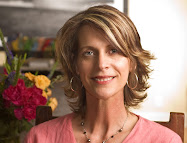I spoke this morning with Jenny Krengel, who is CEO of a company called
Dream Jobs Inc. Jenny’s software platform helps large companies track and manage women employees who need to move in and out of the workforce, for child rearing and other reasons. They try to match them with part time, flex time or project based work so they don’t lose them altogether.
Given Jenny’s expertise in the area of women who drop out of the workforce, I had given her a call to get her thoughts on a new book by Leslie Bennett called
The Feminine Mistake: Are We Giving Up Too Much? Apparently it has caused quite an uproar among some women, particularly women who are stay at home Moms.
However, I believe it has plenty of application to us mid-lifers as well. And, I feel strongly about this subject because of personal experience.
The Book:Ms. Bennett's book presents her research about women who are economically dependent on their husbands, whether because they stay at home with the kids, don't have to work or don't choose to work. She is alarmed because that situation is so often treated as a mere lifestyle choice without addressing the serious economic ramifications for making that choice. Here is her synopsis:
My reporting revealed that the bad news is just as ominous as I'd feared; so many women are unaware of practical realities that range from crucial changes in the divorce laws to the difficulties of reentering the work force and the penalties they pay for taking a time-out.
She looked at women who had suffered economic hardship due to divorce, widowhood, spouse's illness or unemployment, etc. It wasn't a pretty picture.
Jenny’s Story:She is a Mommy herself who stayed home with her daughter. But she eventually realized she needed some work to stay sane. Alas, she found it was next to impossible to find part time work that paid this high achieving enterprise software saleswoman what she was worth (one point made in the book).
She did some research and found that big companies were starting to realize what an expensive brain drain it was to have well performing women in whom they had invested heavily exit the company to have children or take care of parents. Often never to be seen again. She saw a business opportunity and acted on it.
The good news: the big companies are slowly coming around to the notion of part time, flex time and project based work to accommodate the needs of these women. Jenny has clearly hit a nerve because she is getting a great deal of visibility among some of the country’s largest companies. But it's slow.
Jenny says of The Feminine Mistake:
“I see Leslie’s book as a resource-guide and a nudge to take stock and have insight; rather than a threat, judgment, or something to be offended by. No matter what role someone chooses to play, we all have our strengths and gifts; and the key is finding them and how to play them out in the best interest of not only yourself, but of your family."She acknowledges it as a tough situation. She can relate to a woman wanting to be home with her children. No one wants to criticize a woman making that choice.
But I have to ask, what is ‘best’ for the kids?
My Story: I was widowed at 36. I never dreamed such a thing would happen to me. I had worked some in my husband's business but didn't have a career. I was fairly fortunate to be left with some financial resources. I can't help though but think of the women who are married and not working, who may have very little financial cushion and who have the average American debt. What would happen to them if their spouse left, or became ill, or lost his job??
Then, there are the 6 or 7 women I know who are all in their 50s now, but who quit work early on to have kiddos, and who were Moms, community volunteers and the like. When the divorces came, they, and their children, were in a big bind.
Divorce outcomes seem to be inconsistent and not all men have their children’s best interests at heart. At least one friend had to declare bankruptcy. Two teetered on the brink of bankruptcy. They suffered and their children suffered. They haven't even come close to making up for the economic loss. And these are intelligent, well-educated women who were married to very well off men.
So, I worry for us mid-lifers who are short in the career area, or who leave their husbands in charge of the finances, or who risk being divorced or widowed later in life without work skills. And, I worry for our daughters who may have made the choice to step off the career path.
Not because of judgment on the choice itself (what is more important than raising children well I ask?). But because I know life is so uncertain, and no one is immune to bad things happening. No, I worry at our vulnerability.
Perhaps Jenny’s story proves things are changing so eventually we won't have to make either/or choices. But, I welcome the Feminine Mistake as a provocative wake up call to resist turning a blind eye to the economic realities of our choices.











